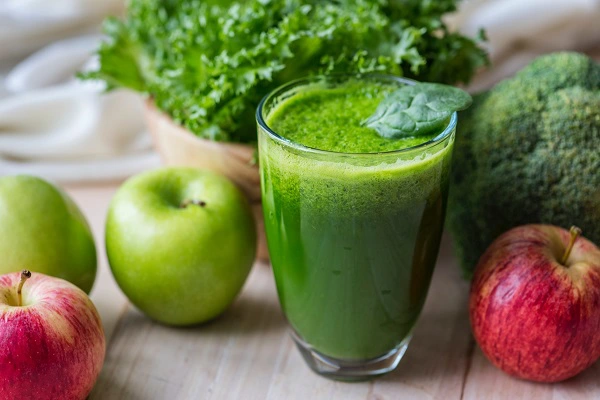There are many factors that lead to chronic inflammation, of which an unscientific diet is also one of the important causes. Therefore, improving nutrition and prioritizing eating anti-inflammatory foods will help reduce the risk of diseases caused by chronic inflammation.
1. An unhealthy diet increases the risk of inflammation
Inflammation is the body’s normal response to infection, illness and injury. If the inflammatory response occurs in a short period of time to repair tissue or remove infection from the body, it is called acute inflammation. But when chronic inflammation persists for a long time, it increases the risk of diseases such as heart disease , diabetes, arthritis, chronic lung disease, and even cancer…
According to medical experts, there are many factors that lead to chronic inflammation, including an unhealthy lifestyle, lack of exercise, stress, constant exposure to toxic substances, smoking… In particular, a diet that abuses foods such as refined sugar, processed foods, red meat, refined grains, drinking a lot of alcohol… can promote inflammation in the body.
Specifically, red meat and processed meat contain a lot of saturated fat. Saturated fats, along with trans fats and refined sugars, cause some immune cells to release inflammatory proteins into the blood. Other fried foods that use vegetable oils high in omega-6 fatty acids also increase inflammation.
On the other hand, overeating these foods also leads to the risk of obesity, excess fat tissue contributes to hormonal changes and the immune system that cause inflammation.

Fresh fruits and vegetables contain many antioxidants that help fight inflammation effectively.
2. What to eat to fight inflammation?
A healthy lifestyle and a scientific diet can help reduce inflammation in the body. A diet rich in anti-inflammatory foods can also improve insulin sensitivity, promote a healthy gut microbiome and strengthen the immune system.
Some common anti-inflammatory foods include foods rich in antioxidants and vitamins A, B, C, E; healthy fats such as vegetables, olive oil, berries, whole grains, nuts, fatty fish… Antioxidants in foods help fight free radicals that damage cells and cause inflammation.
- Fresh fruits and vegetables
Flavonoid antioxidants are abundant in plant-based foods such as fruits and vegetables. In particular, the more colorful the fruits and vegetables, the richer the flavonoids.
With anti-inflammatory and antioxidant properties, natural flavonoids in fruits and vegetables can enhance immune health, it inhibits the synthesis and biological activity of various inflammatory mediators.
Berries such as blueberries, strawberries, raspberries; citrus fruits such as oranges, lemons, grapefruit are excellent sources of flavonoids that help improve cardiovascular health, reduce risk factors for heart disease and improve blood vessel function.
- Whole Fruit and Vegetable Smoothies
One of the most compelling reasons to eat whole fruit smoothies without added sugar instead of sugary fruit juices is that this method retains the vitamins, minerals, fiber, and antioxidants that are good for gut health, balancing blood sugar, and maintaining healthy cholesterol levels.
Studies have shown that people who regularly add fiber-rich foods and antioxidants such as fresh fruits and vegetables to their daily diet are more likely to be protected against certain chronic diseases such as heart disease and metabolic syndrome.
- Green Tea
Many studies have shown that compounds found in tea leaves such as polyphenols, catechins, and theaflavins can reduce inflammation in the digestive tract and cardiovascular system.
The natural antioxidant catechin (EGCG) in green tea helps prevent cell damage, reducing the formation of free radicals in the body. EGCG inhibits inflammation by reducing the production of inflammatory cytokines and damage to fatty acids in the body’s cells. Green tea also increases the antioxidant capacity of the blood, helping to protect LDL particles from oxidation, one of the causes of heart disease.

The natural antioxidant catechin (EGCG) in green tea helps prevent cell damage.
- Fatty Fish
Fatty fish are a great source of protein and healthy omega-3 fatty acids. When we consume these fatty acids, our bodies convert them into compounds that have anti-inflammatory effects.
Omega-3s interfere with immune cells called leukocytes and enzymes called cytokines, both of which play a role in the body’s inflammatory response.
Although all fish contain some omega-3 fatty acids, fatty fish such as salmon, sardines, herring, mackerel, and anchovies are the best sources of omega-3 fatty acids.





